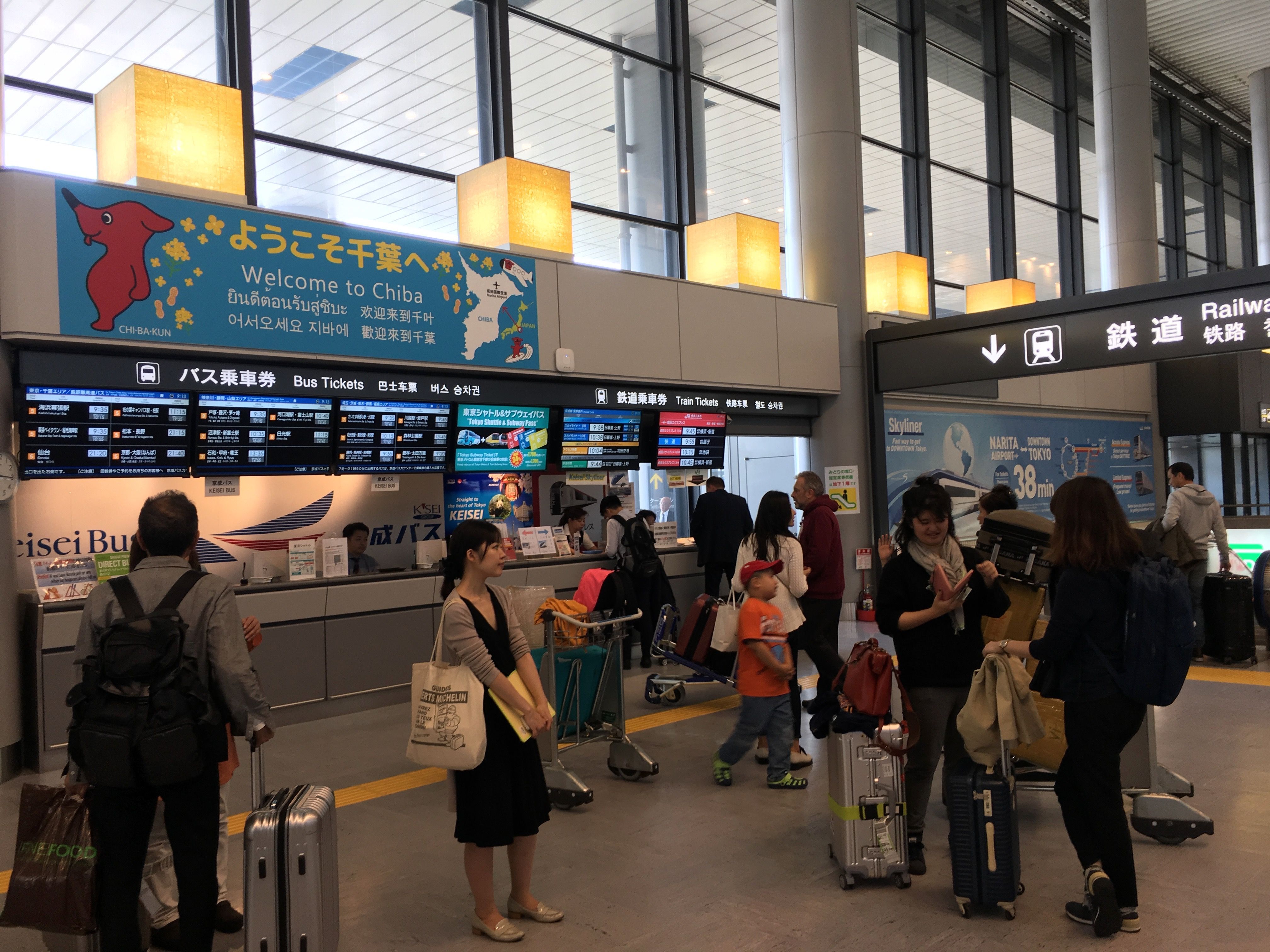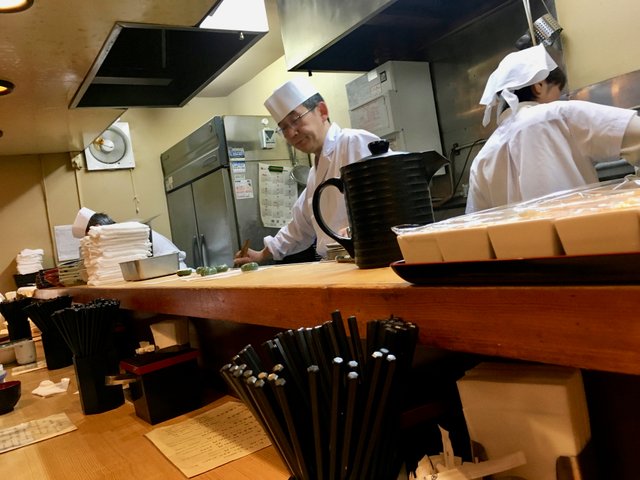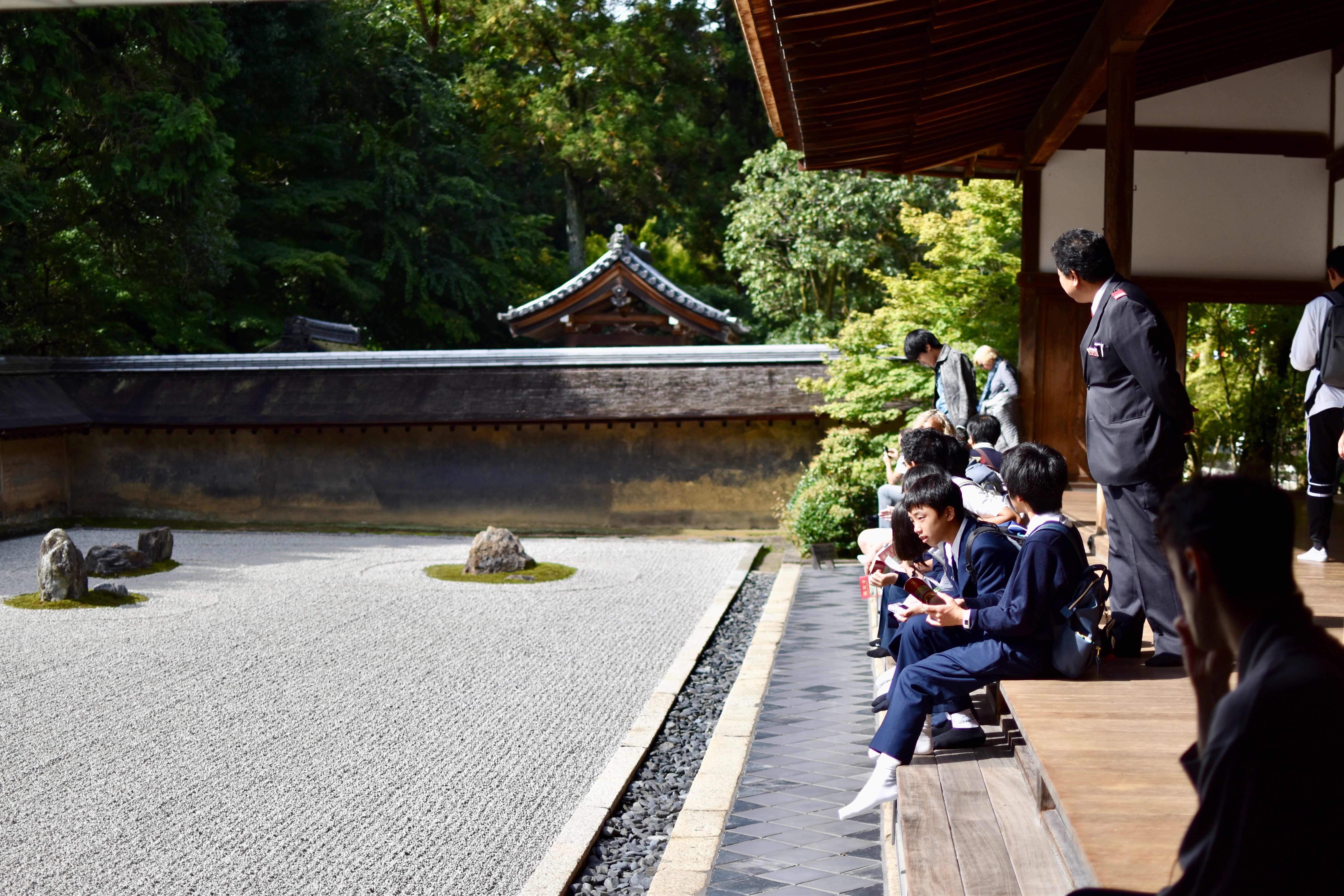Going to Japan without speaking Japanese? by @japon (translation from French)
This is an authorized translation in English of a post in French by @japon: Partir au Japon sans parler japonais?
Note that the person that speaks here is NOT me, Vincent Celier (@vcelier), but @japon, a French guy.
When I decided to visit Japan for three weeks, I asked myself at one point the question of the language. I speak English reasonably well, but my various readings on Japanese culture all came to the same conclusion: the Japanese are not very open to foreign languages. That's why for over a year I took classes in Japanese, so that I could be a little autonomous over there. So what is it really? And finally, is it really different from us in France?
It is easy to criticize and to say that some countries are not very good at languages, but we forget a little too quickly that France is far from being a good student. If, in hotels or restaurants in France, the language of Shakespeare is not a problem, in the street it is quite something else. And in Japan it will not be very different. But first, let me tell you an anecdote.

I flied from Bordeaux to Amsterdam, from where I took a flight to Tokyo. But I only had 50 minutes between the two airplanes in Amsterdam, so let me tell you that I ran as fast as I could, especially that the Schiphol airport is huge. And it happened what was bound to happen: I was on the plane bound for Tokyo, but my suitcase missed the plane in Amsterdam. The holidays were starting really well!
I was automatically notified by SMS when I arrive in Tokyo, so I went to the counter of the airline and I was told that my suitcase should arrive the next day by the next flight, and it will be delivered directly to my hotel.
I now had to explain this at the hotel reception. As I had just spent 15 hours flying, I was completely exhausted, so I did not want to make the effort of speaking Japanese. I asked the receptionist, a young Japanese woman in her twenties, if she spoke English. She answered with an air of annoyance that her English was very bad.
So here I go to detail my luggage problems in Japanese, that I left the phone number and address of the hotel. I hear her then congratulate me on my level of Japanese (me who thinks that I speak as well as a five years old child, I am a little flattered). I answer with the standard courtesy that I still have a lot to learn before I can speak properly. We continue our discussion about the room, and I see the director of the hotel who also comes to congratulate me for speaking Japanese so well. Wow!
This story could have stopped there, except that two days later I saw this same receptionist talking to another tourist ... in English ... I had been had!

So are the Japanese so closed to foreign languages? Not that much. They are mainly afraid of not being up to the task, of not being able to make themselves understood. But in big cities like Tokyo, Kyoto or Osaka you will have no trouble finding someone who speaks English. But if you plan to get out of the beaten path, some words of Japanese will be welcome. Although, for a standard tourist, it is still better to have a good level of English than just a bad level of Japanese.
However, I do not regret having made the effort to learn this fascinating language. I could talk about that for hours, as it is a reflection of Japanese culture. But speaking Japanese allowed especially to create connections. As soon as people saw that I spoke their language a little, their eyes started to sparkle and they were delighted to see that I had made this effort. The revert of the medal is that they often thought that I spoke fluently, and so they started to talk to me like to one of their countryman. I had to temper them a little!

I have excellent memories of some meetings with Japanese people, such as with an adorable person who is managing a ryokan in Kyoto. When I arrived, I started talking to her in Japanese. She was surprised and I replied that her Japanese was still better than mine. From there, a complicity settled during these few days. Every night she asked me what I had visited and she even invited friends of her so we could all talk together. Those were unforgettable moments, a reward for the long hours of learning the language during the previous months.
-- @japon
Travel diary in Japan, by @japon
Tokyo, overcrowded city? Really? by @japon
Are the Japanese too disciplined? by @japon
It's great to know that you can get by with English in bigger cities, although I'd want to get off the beaten path for sure if I get to visit Japan.
Awesome job for @japon to learn some Japanese, wow! It must have been so hard.
Thank you for translating this informative post!
Your anecdote reminded me of a funny story. I and my daughter traveled to Europe. After a long flight my daughter got a sore throat. I left my daughter at the hotel to sleep, and went in search of a pharmacy. I wanted to buy Paracetamol. I found a pharmacy, made a purchase, and gave my daughter a pill. Some time after returning home from the trip, my mother saw the packing from these pills in the home medicine cabinet and asked me: "Nick do you have a problem?". It was not Paracitomol, but PROSTAMOL !!! Then I realized one truth: - I need to know a little the language of the country I are visiting.
P.S. My daughter's throat recovered very quickly, surprisingly)))
Yes, sometimes I had to ask many times for the Japanese what they tried to tell me in English. The way they pronounce in English is a bit weird ;-)
This is really amazing. I remember also when I first reached Uganda from Rwanda. I almost cried. I only knew french, Swahili and kinyarwanda but couldn't speak English.
When I reached i decided to start campus, the funny thing is that I could just hear people speaking and then look down while laughing. The people close to me would know that I'm listening yet I couldn't hear anything at all.
One day, a guy came to my room asking for flat iron, I almost cried. I never knew the meaning of that world and it was just there on my table. So, I decided to tell him that I don't have to stop him from asking me many words.
He suddenly looked at me and was like" how come?"the flat iron is there....so, I really felt ashamed and made a decision of working in my English. It was hard, every day with a dictionary, reading books and cramming class notes without knowing the meaning.
Omg! I can't forget that experience.
Nice story ! Sometimes something has to "kick your ass" to make you learn a language !
my husband is workring at nagoya japan. and he tell me that most of the Japanese people there can't talk english and my husband can't talk nihonggo too very well. that's why in his first month in nagoya, my husband really had difficulties to communicate his japanese co-workers. Gladly that his sachou or boss knows how to speak english and sachou help him to understand thier langguages.
@vcelier, you did enjoy yourself at Japan, i look forward to visiting Japan with family very soon.
But i would like to know; if they have difficulty speaking english fluently, does that mean they never took english classes in their respective schools?
Did you read carefully the first lines of this post?
I have never been to Japan myself.
They do think that japanese is very hard for foreigners to learn and this is why they are so surprised when you actually can communicate even a little.
I will study it as much as possible, hopefully I can be successful as you all 2018 are ready to become more profitable!
I'm sure 2018 will be a lucky day for me ,,, with the help of all of you.
I am sure it was a great fun for you to learn how to speak Japanese and their ways.
Really, it is very helpful if you have some knowledge about local language...because i face that type of situation....
Great info...Thanks...
yes... nice follow you blogs steemit and vote thanks.
I found the Japanese very accommodating and polite even despite the language barrier! I'd love to learn it though
You are right about France being a similar situation as it happened to me there (in Paris, Lyon, and Calais).